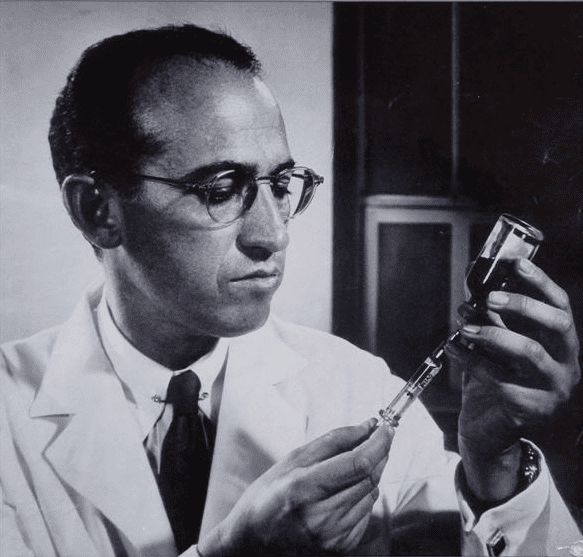Poliomyelitis, often called polio or infantile paralysis, is an infectious disease caused by the poliovirus. Poliomyelitis has existed for thousands of years, with depictions of the disease in ancient art. The disease was first recognized as a distinct condition by the English physician Michael Underwood in 1789 and the virus that causes it was first identified in 1908 by the Austrian immunologist Karl Landsteiner. In the 20th century it became one of the most worrying childhood diseases in these areas.
The disease is preventable with the polio vaccine; however, multiple doses are required for it to be effective. Once infected there is no specific treatment. In 2016, there were 37 cases of wild polio and 5 cases of vaccine-derived polio. This is down from 350,000 wild cases in 1988. In 2014 the disease was only spreading between people in Afghanistan, Nigeria, and Pakistan.
In 1948, Jonas Salk (a medical researcher and virologist) undertook a project to determine the number of different types of polio virus. Salk saw an opportunity to extend this project towards developing a vaccine against polio, and, together with the skilled research team he assembled, devoted himself to this work for the next seven years.
After successful tests on laboratory animals, on July 2, 1952, Salk injected 43 children with the vaccine he developed. In 1954 he tested the vaccine on about one million children, known as the polio pioneers. The vaccine was announced as safe on April 12, 1955 and was the first vaccine for the disease. It is on the World Health Organization's List of Essential Medicines, the most effective and safe medicines needed in a health system.
Jonas Salk campaigned for mandatory vaccination, claiming that public health should be considered a "moral commitment." His sole focus had been to develop a safe and effective vaccine as rapidly as possible, with no interest in personal profit. When asked who owned the patent to it, Salk said, "Well, the people I would say. There is no patent. Could you patent the sun?"
Had he patented it.. he would have made as much as $7 billion from that patent!
Reference - Wikipedia


No comments:
Post a Comment